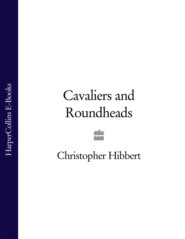По всем вопросам обращайтесь на: info@litportal.ru
(©) 2003-2025.
✖
Disraeli: A Personal History
Настройки чтения
Размер шрифта
Высота строк
Поля
Enjoying her role as trusted amanuensis, Sara Austen encouraged Disraeli in his work; and when the idea of a satire on the Utilitarians, which was at the same time to ridicule the novel of fashionable life, came into his mind, she greeted it with her usual enthusiasm. ‘Mind you write Pop,’ [The Voyage of Captain Popanilla] she wrote to him while she was still in Lichfield. ‘I shall want to work when I get home.’
(#litres_trial_promo)
He settled down to work with an enthusiasm which had seemed to have deserted him, writing with his former speed and energy, composing a fantasy about an island named Fantasie, the inhabitants of which, in naked innocence, spend much of their time making love, just as Vivian Grey would, no doubt, have liked to do with the beautiful Violet Fane, a character in the earlier book in which – at a significant picnic in a passage excised in later editions – a ‘facile knife’ sinks ‘without effort into a bird’s plump breast, discharging a cargo of rich stuffed balls of the most fascinating flavour’.
Popanilla, dedicated to Robert Plumer Ward – who told its author that it was equal to Swift’s Tale of a Tub – was published by Henry Colburn in June 1828, and was greeted with even less éclat than the second part of Vivian Grey, receiving but two reviews, both of them short. Cast down by this reception, Disraeli fell ill again and felt no better when his parents took him to Lyme Regis for the benefit of the sea air. Sarah D’Israeli did not know ‘what to say to comfort’ him; nor did William Meredith, his sister’s fiancé; nor yet did Isaac D’Israeli, who wrote:
My son’s life within the last year and a half with a very slight exception, has been a blank in his existence. His complaint is one of those perplexing cases which remain uncertain and obscure till they are finally got rid of. Meanwhile patience and resignation must be his lot.
(#litres_trial_promo)
Concerned about the ‘precarious health’ of Benjamin and other members of his family, so he told Robert Southey, Isaac D’Israeli decided to ‘quit London with all its hourly seductions’ and to take a house in the country. In the summer of 1829, therefore, the D’Israelis gave up the house in Bloomsbury and moved to Bradenham, a handsome Queen Anne house with over 1,300 acres at the foot of the Chiltern Hills in Buckinghamshire, a few miles from High Wycombe, which was itself some three hours’ coach journey from London.
In the front of the hall [Disraeli was to write of this property] huge gates of iron, highly wrought, and bearing an ancient date as well as the shield of a noble house opened on a village green round which were clustered the cottages of the parish with only one exception, and that was the vicarage house, a modern building, not without taste, surrounded by a small but brilliant garden…Behind the hall the country was common land but picturesque…It had once been a beech forest.
(#litres_trial_promo)
Isaac D’Israeli settled down to country life with surprising speed and contentment; so did his daughter Sarah, who was often to be seen in the little village taking food and presents to the poor and sick and giving orders to – and taking advice from – the gardeners. Her younger brothers, Ralph, now aged twenty, and James, sixteen, were also happy at Bradenham.
Benjamin, too, liked Bradenham, and he spoke fondly of its trees, its beeches and junipers and its wild cherries.
He told Benjamin Austen in October 1829 that he was ‘desperately ill’. But, even so, he ‘hoped to be in town in a day or two – incog, of course, because of the duns eager to nab [him]’. He would then find his way to Austen’s chambers and shake his ‘honest hand.’
He had begun another book, The Young Duke, which, so he told William Meredith, was ‘a series of scenes, every one of which would make the fortune of a fashionable novel. I am confident of its success, and that it will complete the corruption of the public taste.’
(#litres_trial_promo)
Indeed, he was sufficiently confident to approach John Murray, suggesting an interview and assuring the publisher that it had always been his intention, should it ever be his ‘fate to write anything calculated to arrest public attention’, that the house of Murray ‘should be the organ of introducing it to public notice’.
Not surprisingly, Murray declined the offer of an interview but ‘assured Mr Disraeli that, if he cared to submit the manuscript, the proposal would be entertained with the strictest honour and impartiality’.
This was scarcely more encouraging than the comment that Issac D’Israeli was quoted as having made when informed that the title of his son’s new book was to be The Young Duke. ‘Young Duke! What does Ben know of dukes?’
(#litres_trial_promo)
Nor were others, to whom the manuscript was shown, as enthusiastic as its author had hoped they would be. Colburn’s reader, who was asked for an opinion in March 1830, had reservations; so, too, had Edward Lytton Bulwer, whose Pelham had been published with great success two years before and whose opinion and friendship Disraeli valued. He was much cast down by these criticisms; but Colburn gave him £500 for the book and, when it was published, the critics were kind and some were enthusiastic.
The Westminster Review told its readers that ‘to parasites, sycophants, toad-eaters, and humble companions’, the book would be ‘full of comfort and instruction in their callings’. But this verdict was exceptional. As his sister told him, without overdue flattery, most of the weekly and Sunday papers ‘reviewed it with excessive praise’. She herself thought it was ‘most excellent’. ‘There is not a dull half page…One reading has repaid me for months of suspense, and that is saying everything if you knew how much my heart is wrapt up in your fame.’
As for Disraeli himself, he protested that he did not care a jot about The Young Duke. ‘I never staked any fame on it.’ It was, he said later, the only one of his books not written from his own feelings and experience. It is the fantastical story of a young coxcomb, George Augustus Frederick, Duke of St James’s, a sprig of one of the richest families in Europe, who is corrupted by society, but redeemed when he abandons rebellion for conformity and accepts the responsibilities of his inheritance.
Disraeli was much more interested in a project which he had been considering for some time, a tour in the East. He went up to London occasionally to discuss his plans with Meredith, who was to accompany him, travelling incognito, as he put it, for fear he might be seen and dunned by the various people to whom he owed money. He was careful, in fact, not to let his plans become public knowledge and thus alert his creditors to his intention of going abroad again and giving them good reason for demanding the settlement of his debts before he went.
‘Keep this letter to yourself without exception,’ he wrote to Benjamin Austen on 8 December 1829, having persuaded him to give him a letter of credit for £500, addressed to various bankers, to help finance his proposed journey to Constantinople. ‘Though generally accused of uncommunicativeness, I like a gentle chat with a friend provided it is strictly confidential and he be a tried and trusty one like yourself,’ he told Austen. ‘Women are delightful creatures, particularly if they be pretty, which they always are; but then they chatter – they can’t help it – and I have no ambition – in case my dearest project fails – to be pointed out as the young gentleman who was going to Constantinople…By the bye, I advise you to take care of my letters, for, if I become half as famous as I intend to be, you may sell them for ten guineas apiece to the Keepsake.’
(#litres_trial_promo)
To Austen’s wife – of whose possessive devotion he had long since grown tired – he wrote three months later, acknowledging her ‘repeated kind messages’, complaining that his health could not be worse and that, of all places, London was the one to which he was least suited.
My plans about leaving England are more unsettled than ever [he continued]. I anticipate no benefit from it, nor from anything else, but I am desirous [of leading] an even more reclusive life than I do at present…I grieve to say that my hair grows very badly, and I think more grey, which I can unfeignedly declare occasions me more anguish than even the prospect of death.
(#litres_trial_promo)
Despite the gloomy remarks about London and his health which he made in his letter to Sara Austen, Disraeli was in town again three weeks later, ‘in excellent spirits,’ according to Meredith, who had invited him to dinner. He was ‘full of schemes for the projected journey to Stamboul and Jerusalem; full, as usual, also of capital stories, but he could make a story out of nothing’.
He came up Regent Street, when it was crowded [Meredith wrote in his diary], wearing his blue surtout, a pair of military light blue trousers, black stockings with red stripes, and shoes! ‘The people’, he said, ‘quite made way for me as I passed. It was like the opening of the Red Sea, which I now perfectly believe from experience. Even well dressed people stopped to look at me.’ I should think so!
(#litres_trial_promo)
That same month Disraeli also had dinner with Edward Lytton Bulwer at his house in Hertford Street, together with four men who were, respectively, to become a Secretary of State, Ambassador at Constaninople, a Cabinet Minister and Lord Chief Justice; and, once again, Disraeli was remarkable for the colourful eccentricity of his dress and the wit and fluency of his conversation.
He wore green velvet trousers [his host remembered], a canary-coloured waistcoat, low shoes, silver buckles, lace at his wrists and his hair in ringlets…If on leaving the table and asked which was the cleverest of the party, we should have been obliged to say, ‘the man in the green velvet trousers’.
(#litres_trial_promo)
Shortly after this dinner party at Bulwer’s, Disraeli was staying at the Union Hotel in Cockspur Street when he wrote to T. M. Evans, his former fellow clerk, to whom he owed money, and to whom he addressed a long and devious letter, apologizing for having been ‘too long silent’, explaining that it was because, for the last three years, life had not afforded him a moment’s ease, and now ‘after having lived in perfect solitude for nearly eighteen months’, he was about to be shipped off ‘for the last resource of a warmer climate’.
He protested that to leave England in such a state as his, without finally arranging his ‘distracted affairs’, cost him ‘a pang which [was] indeed bitter’. And he said that it would be a great consolation to him to know before his departure that ‘dear Evans’ was ‘prospering in the world’.
He went on to acknowledge Evans’s ‘generous and manly soul’; to say that the first step he would take when he had the power to do so would be in Evans’s favour; and that he hoped ‘some day or other, we may look back to these early adventures, rather as a matter of philosophical speculation than individual sorrow’. He hoped to see Evans, on his return from his travels, at Bradenham House but at present he was ‘only the inmate of an unsocial hotel’.
(#litres_trial_promo)
On the day he wrote to Evans from the Union Hotel, Cockspur Street, he wrote also to Austen to say that he had passed ‘the last week, nearly in a trance from digitalis’. ‘I sleep’, he had told him, ‘literally sixteen out of the twenty-four hours and am quite dozy now.’ He could but hope that his forthcoming travels would ‘effect a cure’.
(#litres_trial_promo)
5 TRAVELS AND ADVENTURES (#ulink_72c189b1-ae1d-5471-acf0-73fd3365db12)
‘We ate; we drank; we ate with our fingers, we drank in a manner I never recollect – the wine was not bad but had it been poison…it was such a compliment for a Moslemin that I must quaff it all…we quaffed it in rivers. The Bey called for the Brandy…we drank it all – the room turned round.’
‘THIS ROCK’, wrote Disraeli of Gibraltar, ‘is a wonderful place with a population infinitely diversified – Moors with costumes radiant as a rainbow or an eastern melodrama…Jews with gaberdines and skullcaps, Genoese, Highlanders [of the garrison] and Spaniards.’
(#litres_trial_promo)
‘In the Garrison Library’, he told his father, ‘are all your books’, adding archly, ‘it also possesses a copy of another book, supposed to be written by a member of our family, and which is looked upon at Gibraltar as one of the masterpieces of the nineteenth century. You may feel their intellectual pulse from this. At first I apologised and talked of youthful blunders and all that, really being ashamed; but finding them, to my astonishment, sincere, and fearing they were stupid enough to adopt my last opinion, I shifted my position just in time, looked very grand, and passed myself off as a child of the sun, like the Spaniard in Peru.’
(#litres_trial_promo)
He had arrived at Gibraltar with William Meredith in the middle of June 1830 and had soon been presented to General Sir George Don, the acting governor of the fortress in the absence of its official governor, the Duke of Kent.
Don was ‘a very fine old gentleman almost regal in his manner,’ so Disraeli wrote. ‘He possesses a large private fortune, all of which he here disburses, and has ornamented Gibraltar, as a lover does his mistress.’
(#litres_trial_promo)
So often drawn to women older than himself, Disraeli was much taken with Lady Don, who was ‘without exception one of the most agreeable personages [he] had ever met, excessively acute and piquante…To listen to her you would think you were charming away the hour with a blooming beauty in Mayfair; and, though excessively infirm, her eye is so brilliant and so full of moquerie that you quite forget her wrinkles. All in all,’ he added with characteristic hyperbole, she was ‘the cleverest and most charming woman [he] had ever met’.
(#litres_trial_promo)









